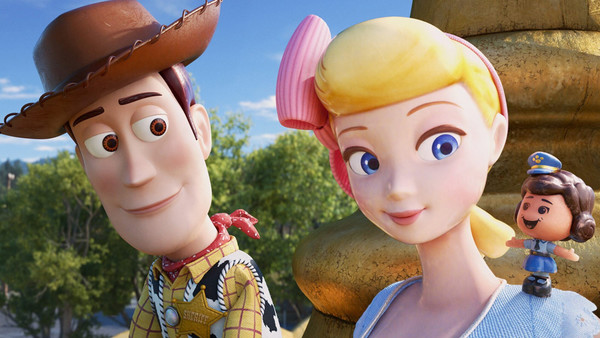Toy Story 4 Theory: The Real Untold Tragedy Of Woody
1. How Toy Story 4 Gives Woody The Right Ending

It's Woody's unspoken tragedy that sets him apart from the other toys, rather than their naivety. Throughout the series, he's painted as more aware, even without the revelation of toy existence that comes in Toy Story 4, which makes no sense when you think about it, really.
It's not simply a matter of Woody being big-hearted or a father figure to the other toys. He's no better than them in moral terms and he shouldn't have anything within him that makes him so different. And yet, while the other toys are driven solely by a desire to be playthings for Andy and do not wrestle with the impending "doom" of being given away or sold anywhere near as much as he does, Woody is dangerously anxious about the idea of his own redundancy.
That's not even something that really occurs to the other toys, until he meets Jessie in Toy Story 2. Even Wheezy doesn't really have issues with being thrown away, he just seems to accept it as a fact of life, and so too does Bo Peep when we see her being sold in the Toy Story 4 flashback. Woody has invented the anxiety of being passed on because of his own fears of redundancy that were forged in the forty years of him being left alone and unloved.
And it takes a little spork and the return of Bo Peep in Toy Story 4 for him to give up on his past and the idea that a toy needs ownership to be validated. What they need, he realises, is friends. We should have seen it all along, from the moment Randy Newman started singing about having a Friend In Me.
When Bo Peep comes back into Woody's life, he has his moment of epiphany that he's been concerned about the wrong things. And it's all thanks to Forky, really. The film's story follows Woody as he attempts to save a character who might as well be a personified challenge to his fundamental belief in needing an owner.
Forky has no concept of ownership, because his existential crisis is focused around him believing he's not a toy and wanting to be thrown away as trash. Woody wants to save him for his own good, not simply because Bonnie loves Forky, but because if Forky is allowed to be thrown away, it confirms what he always feared most: that kids move on and that toys are fundamentally relplaceable no matter how much they appear to be loved. After 40 years without love, he was showered with it from Andy and then he saw that fade again and it broke him. He saw Lotso go through the same thing and Jessie before him and his quest to reunite Forky with Bonnie is really an attempt to fight against inevitability.
Woody is fighting as much for himself when he's saving Forky as he is for Bonnie's sake.
And while he does reunite Forky with Bonnie, his experiences alongside the spork - who challenges him essentially with questions we all thought were just jokes ("why am I alive?") - lead him to the realisation that toys don't need to be owned. Or that they don't need to be so attached to only one child forever. And that was Woody's biggest challenge precisely because of that unspoken 40 years of redundancy that sits in the back of his mind.
it's only when he puts that behind him and not just the spectre of his time with Andy, that he can truly find happiness when he decides to head out on a new adventure with Bo at the end. And that's precisely why the ending of Toy Story 4 is such a perfect ending for Woody and we don't really need to see him ever again. No matter how much money Pixar make.
What do you think of Toy Story 4? Share your reactions below in the comments thread.